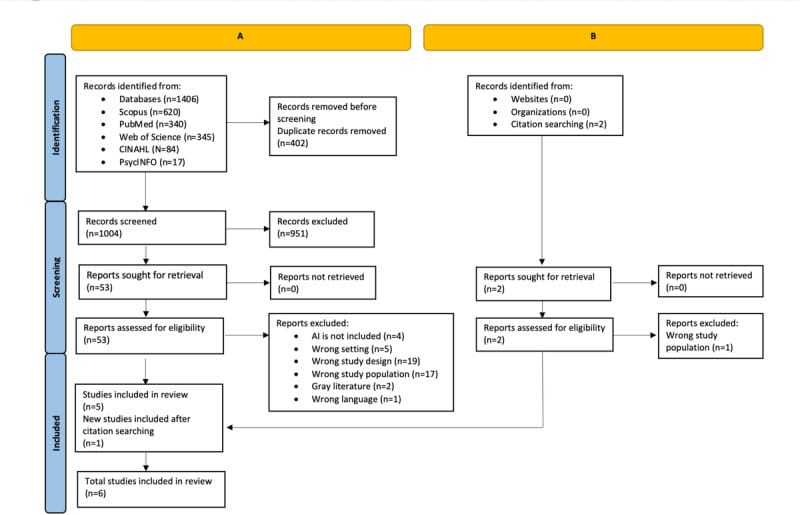Partnered with

Hey HAIFer!
Welcome back to another edition of our weekly newsletter.
Today, I’m taking a slightly different approach with Signal of the Week. Instead of looking at this week in isolation, I’m stepping back to connect it with signals from recent issues - revealing the pattern that’s building in real time.
I hope you enjoy this week’s insights and updates. And as always: new week, new signals.
Sponsored by: Nebius
Accelerate drug discovery with AI: Nebius & NVIDIA BioNeMo
Drug discovery is often held back by expensive experiments, long training cycles and limited compute power.
In this webinar, you’ll see how NVIDIA BioNeMo, together with Nebius scalable cloud infrastructure, can reduce time and cost by accelerating model training, streamlining inference and powering complex computational biology workloads 👉 Register now!
Let’s dive in 👇
If you have only 30 seconds - here are 8 of the key updates:
Function Health (US) raised $298M to scale its "Medical Intelligence Lab," signalling a massive capital shift toward autonomous, data-driven consumer health.
Neko Health (Sweden) released its first longitudinal data, showing significant health reversals in members with chronic conditions after one year of scanning.
Sword Health (US/Greece) partnered with the Greek government to deploy its AI-led triage and care platform across the entire national health system.
Arbiter (US) secured a rare $52M Seed round from family offices-skipping VCs-to automate healthcare’s back-office administrative gridlock.
Voio (US) emerged from stealth with "Pillar-0," an open-source medical imaging foundation model that analyses 3D volumes rather than 2D slices.
Malta (EU) officially launched its National Digital Health and Health Data Strategy to digitize care delivery and governance.
TrustedMDT (UK) integrated its cancer care AI agents into Microsoft Teams to assist clinicians during multidisciplinary team meetings.
University of Gothenburg (Sweden) released a systematic review finding that patients strictly prefer AI as a physician support tool, not an autonomous provider.
If you have more time, read on for the foresight of the week and the full breakdown of what shaped healthcare AI last week👇
Signal of the week
Europe enters the era of national AI health systems.

Last week’s newsletter highlighted how leading US and UK health systems are already building Azure-based AI infrastructures inside their organisations - full model pipelines, evaluation layers, and governed deployment paths embedded into the EHR stack. That was the provider-level shift.
This week, the centre of gravity moved upstream. Governments in Europe are now beginning to build the same architectural and governance logic at national scale:
Greece is turning its 1566 health line into an AI-supported front door for ~10 million citizens through its partnership with Sword Health.
Malta published its 2030 Digital Health & Health Data Strategy - positioning AI, data governance, and a unified national EHR as foundational infrastructure.
Spain is expanding imaging-AI in cancer screening as part of a state-led roadmap rather than isolated pilots.
Foresight:
If this trend continues, national AI health systems may end up shaped more by who governments partner with than by the underlying technical benchmarks - shifting competitive advantage from model performance to long-term public–private alignment.
Solutions and Launches
Medscape (US): Released "Medscape AI," a generative AI chatbot for physicians grounded strictly in verified medical content to provide a clinical reference tool. [Link]
Pyx Health (US): Debuted an "agentic" AI navigator that proactively connects vulnerable Medicaid and Medicare members to social resources like food, housing, and transport. [Link]
Cigna Healthcare (US): Launched "Clearity," a health plan model that uses an AI assistant to predict total out-of-pocket costs and answer coverage questions, replacing deductibles with simple copays. [Link]
Oddity Tech (US/Israel): Released "Methodiq," a computer-vision tele-dermatology platform that uses AI to assess skin conditions and track treatment progress under clinician oversight. [Link]
Morgon Medical (US): Released "Imorgon v2," an upgraded ultrasound reporting platform with structured reporting tools designed to specifically streamline sonographer workflows and reduce burnout. [Link]
Microsoft (UK): University of Oxford Integrated its AI agents, TrustedMDT, into Microsoft Teams to listen in and assist tumor boards with record summaries, guidelines and data during cancer treatment planning. [Link]
TORTUS (UK): Integrated its generative AI scribe directly into the Medicus Health EHR, streamlining documentation for UK primary care GPs. [Link]
Newton’s Tree (UK): Debuted a Global AI Evaluation Service to allow hospitals to validate third-party AI algorithms in weeks rather than years. [Link]
Governance, Policy, and Ethics
Malta Government (EU): Unveiled a comprehensive Digital Health Strategy to modernize their nation’s health data infrastructure and governance. [Link]
WHO Europe (EU): Released a report on AI readiness, warning that most member states still lack the legal frameworks to safely deploy clinical AI at scale. [Link]
Research and AI Advancements
A study in Applied Clinical Informatics found that mobile "rapid response" algorithms reduced cognitive load for 78.6% of physicians and improved care delivery for 92.9%. [Link]
Neko Health (Sweden): Released longitudinal data on 1,469 members, finding that those with chronic conditions (diabetes/hypertension) saw the biggest reductions in BP and HbA1c after one year. [Link]
Harvard / Broad Institute (US): Published "popEVE," an AI model that uses evolutionary data to predict the disease-causing potential of rare genetic variants. [Link]

University of Gothenburg (Sweden): A systematic review found patients fear AI "black box" accountability and explicitly prefer doctors who use AI over AI-led care. [Link]

Partnerships, Collaborations, and Implementations
Sword Health (US/Greece): Partnering with the Ministry of Health to upgrade the 1566 helpline with AI triage, improving access for 10 million citizens. [Link]
Northwell Health & K Health (US): Formed a joint venture to integrate AI triage into Northwell’s digital front door, enabling patients to chat with an AI agent for symptom checks and instant booking. [Link]
UI Health & Abridge (US): Announced the full system-wide deployment of Abridge’s ambient AI scribe across inpatient and emergency departments following a successful reduction in documentation time. [Link]
TytoCare & Teladoc Health (US/Israel): Announced the integration of TytoCare’s FDA-cleared "AI Lung Sounds Suite" into Teladoc’s virtual care platform to enable clinical-grade remote exams. [Link]
CureMetrix & Therapixel (US/EU): Integrated their platforms to allow a single mammogram to screen for both breast cancer and heart disease risk factors. [Link]

GSK & Fleming Initiative (UK): Launched a £45M partnership using AI to model "superbug" transmission and accelerate antibiotic discovery. [Link]
Bets on the Next Health System
Funding
Function Health (US): Raised $298M to scale its whole-body medical intelligence platform and autonomous lab insights. [Link]
FamilyWell Health (US): Secured $8M Series A to scale its integrated maternal mental health model into perimenopause and menopause care.[Link]
Arbiter (US): Raised $52M from family offices to build an AI platform that automates back-office referrals and scheduling. [Link]
Manta Cares (US): Raised $5.4M Seed funding to expand its digital cancer support platform for patients and caregivers. [Link]
Voio (US): Secured $8.6M in seed funding to build the universal foundation model for 3D medical imaging. [Link]
M&AGE HealthCare (US): Announced a definitive agreement to acquire Intelerad Medical Systems (Canada/US) for $2.3 billion. [Link]
That’s a wrap for Edition #7 of Health AI Foresight.
My goal with this newsletter is simple - to connect the present, the emerging, and the future of healthcare AI.
If you’d like to sponsor this newsletter, dm me here.
See you next week.
- Dr. Aboufandi
📩 Something stand out? Or have a suggestion? Hit reply - I read every message.


